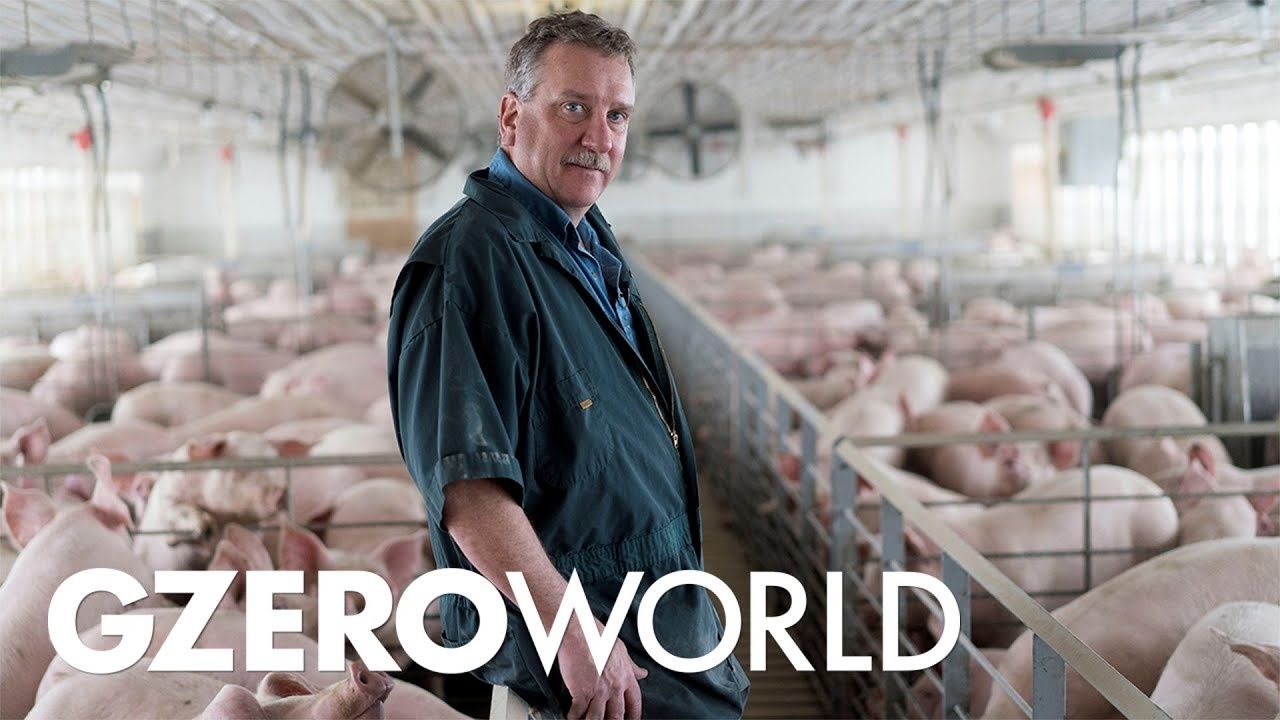
With just a few companies controlling the vast majority of beef, pork and poultry processing in the US, the nation's meat supply chain was already vulnerable. The COVID-19 pandemic has exposed the shortcomings of the system and threatens to disrupt the entire industry, from farmers to processing plants to grocery store shelves.
This week, GZERO World with Ian Bremmer explores two sides of America's current food crisis: Infections and supply chain disruption that have shuttered plants, and growing food insecurity caused by soaring unemployment. Food banks are reporting a 70% increase in demand from communities while farmers are forced to dump milk or let animal products go to waste.
Our guest, Tom Vilsack, knows both sides of the story from experience. As former Governor of Iowa, farming and agriculture were key areas of policy and politics. Later, as President Obama's Sec. of Agriculture, he was tasked with managing the national issues of food supply and demand. Now, as a board member of Feeding America, he sees firsthand the need for more aid to working families who can't make ends meet in this pandemic.